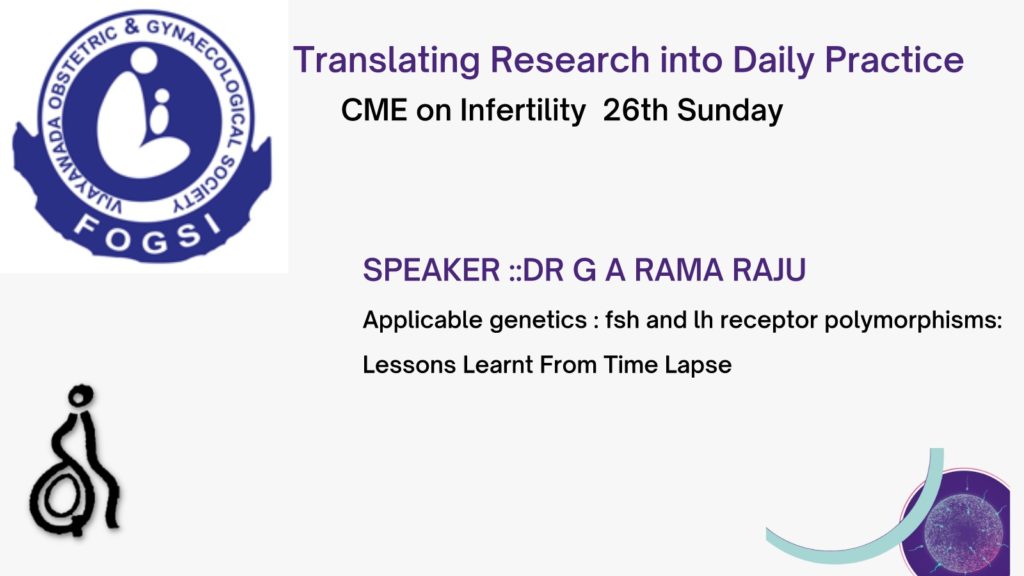
On February 26th, the Vijayawada Obstetrics & Gynaecological Society organised a Continuing Medical Education (CME) on infertility, with a focus on translating research into daily practice. The speaker for the event was Dr G A Rama Raju, who discussed two important topics related to infertility treatment.
The first topic covered by Dr. Raju was applicable genetics, specifically the FSH and LH receptor polymorphisms. These polymorphisms can significantly impact a woman’s response to fertility treatments, such as in vitro fertilization (IVF). Understanding these genetic factors can help doctors tailor treatments to each patient’s unique needs, leading to better outcomes.
Dr Raju also discussed the lessons learned from time-lapse technology in infertility treatment. Time-lapse imaging involves continuously photographing developing embryos to monitor their growth and development. This technology has allowed doctors to gain new insights into embryo development and implantation, leading to improved success rates in IVF.
Throughout the CME, Dr Raju emphasised the importance of staying up-to-date with the latest research and translating that knowledge into daily practice. By keeping abreast of new developments in the field of infertility treatment, doctors can provide their patients with the best possible care.
The event was well-attended by members of the Vijayawada Obstetrics & Gynaecological Society. The society is a vibrant member body of the Federation of Obstetric & Gynaecological Societies of India. Events like this CME help to further its mission of promoting excellence in obstetrics and gynaecology.
Overall, the CME on infertility was a valuable opportunity for doctors to learn from an expert in the field and gain insights into new approaches to treating infertility. By continuing to prioritise research and knowledge-sharing, the Vijayawada Obstetrics & Gynaecological Society is making an important contribution to women’s health.
